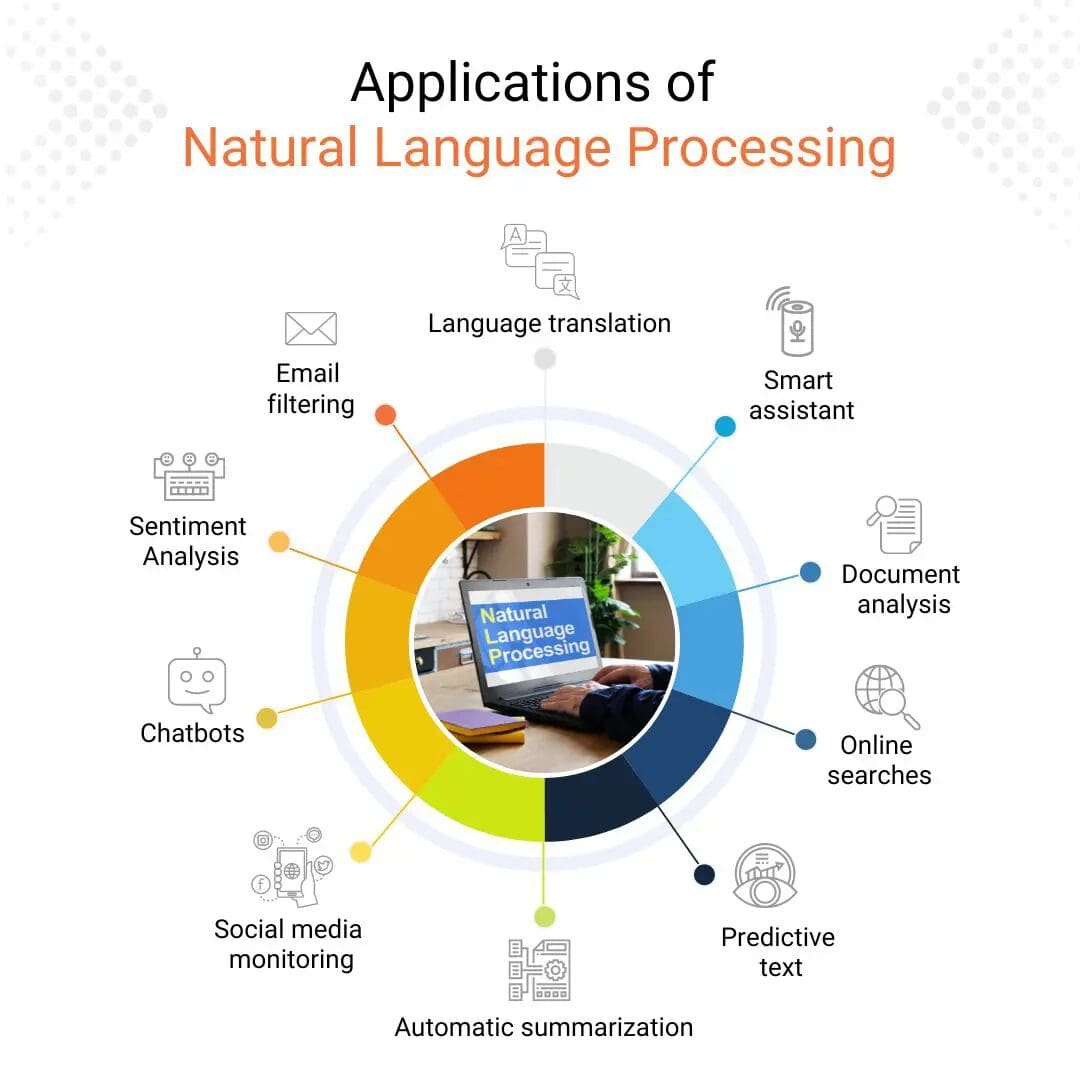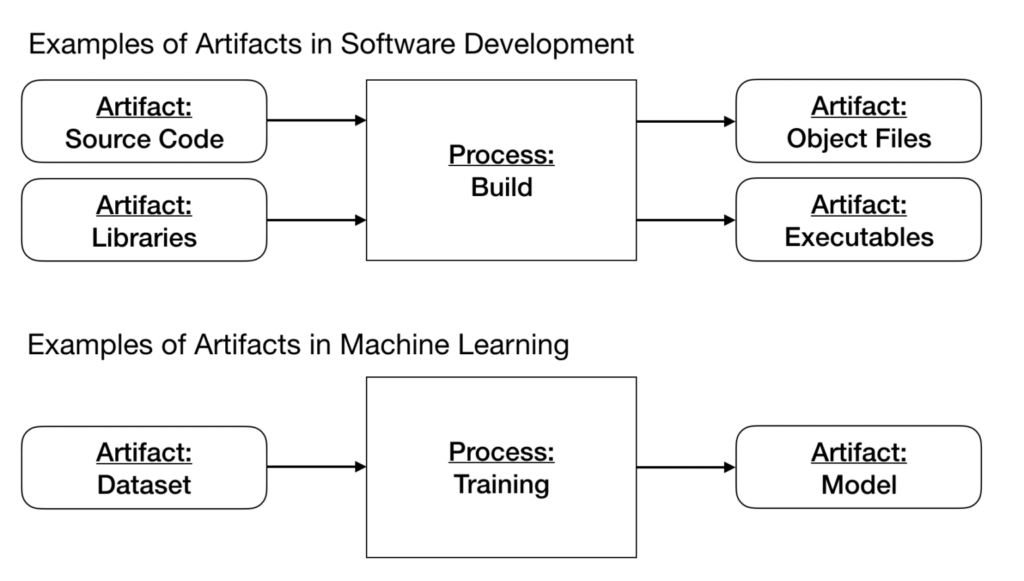All Categories
Featured
Table of Contents
- – New Course: Genai For Software Developers - Qu...
- – Software Engineering Vs Machine Learning (Upda...
- – How I Went From Software Development To Machi...
- – Some Of Machine Learning Engineering Course F...
- – The Ultimate Guide To Llms And Machine Learn...
- – The smart Trick of Machine Learning Online C...
Suddenly I was bordered by individuals who can solve difficult physics questions, understood quantum technicians, and might come up with fascinating experiments that obtained published in top journals. I fell in with a good group that motivated me to explore things at my own pace, and I spent the following 7 years finding out a lot of things, the capstone of which was understanding/converting a molecular characteristics loss function (including those shateringly learned analytic derivatives) from FORTRAN to C++, and composing a gradient descent regular straight out of Numerical Recipes.

I did a 3 year postdoc with little to no artificial intelligence, just domain-specific biology things that I really did not discover interesting, and ultimately managed to obtain a job as a computer researcher at a national laboratory. It was an excellent pivot- I was a principle investigator, meaning I could obtain my own gives, compose documents, and so on, yet didn't have to educate courses.
New Course: Genai For Software Developers - Questions
I still didn't "get" maker learning and wanted to work someplace that did ML. I attempted to obtain a task as a SWE at google- went via the ringer of all the hard questions, and ultimately obtained refused at the last step (many thanks, Larry Web page) and mosted likely to benefit a biotech for a year prior to I ultimately procured hired at Google throughout the "post-IPO, Google-classic" era, around 2007.
When I reached Google I promptly checked out all the tasks doing ML and located that than ads, there actually had not been a great deal. There was rephil, and SETI, and SmartASS, none of which seemed even remotely like the ML I was interested in (deep semantic networks). So I went and concentrated on other stuff- finding out the distributed innovation under Borg and Titan, and understanding the google3 stack and manufacturing settings, generally from an SRE point of view.

All that time I 'd invested in artificial intelligence and computer infrastructure ... went to composing systems that filled 80GB hash tables into memory simply so a mapmaker can compute a tiny component of some gradient for some variable. Sibyl was actually a horrible system and I got kicked off the group for informing the leader the appropriate way to do DL was deep neural networks on high performance computer hardware, not mapreduce on inexpensive linux cluster machines.
We had the information, the algorithms, and the compute, at one time. And even better, you really did not require to be inside google to benefit from it (other than the huge data, which was transforming quickly). I understand sufficient of the mathematics, and the infra to ultimately be an ML Designer.
They are under intense pressure to obtain results a couple of percent much better than their collaborators, and after that once published, pivot to the next-next thing. Thats when I generated among my laws: "The absolute best ML models are distilled from postdoc tears". I saw a few individuals damage down and leave the industry for good simply from working with super-stressful tasks where they did magnum opus, yet just got to parity with a competitor.
This has actually been a succesful pivot for me. What is the moral of this long tale? Imposter disorder drove me to overcome my charlatan disorder, and in doing so, in the process, I discovered what I was going after was not in fact what made me pleased. I'm even more pleased puttering concerning utilizing 5-year-old ML technology like things detectors to improve my microscopic lense's capability to track tardigrades, than I am trying to come to be a famous researcher that unblocked the difficult problems of biology.
Software Engineering Vs Machine Learning (Updated For ... for Dummies

I was interested in Maker Discovering and AI in university, I never had the chance or persistence to go after that enthusiasm. Currently, when the ML area expanded tremendously in 2023, with the newest innovations in huge language designs, I have an awful wishing for the roadway not taken.
Scott speaks concerning just how he finished a computer scientific research level simply by adhering to MIT educational programs and self studying. I Googled around for self-taught ML Designers.
Now, I am not exactly sure whether it is possible to be a self-taught ML designer. The only method to figure it out was to try to try it myself. However, I am confident. I intend on enrolling from open-source programs readily available online, such as MIT Open Courseware and Coursera.
How I Went From Software Development To Machine ... Things To Know Before You Buy
To be clear, my objective here is not to build the following groundbreaking model. I simply desire to see if I can obtain an interview for a junior-level Maker Understanding or Data Design job after this experiment. This is simply an experiment and I am not trying to change right into a duty in ML.

I prepare on journaling concerning it once a week and recording whatever that I study. An additional disclaimer: I am not starting from scrape. As I did my bachelor's degree in Computer Engineering, I understand several of the principles needed to draw this off. I have solid background understanding of solitary and multivariable calculus, straight algebra, and statistics, as I took these training courses in school about a years back.
Some Of Machine Learning Engineering Course For Software Engineers
I am going to concentrate primarily on Maker Discovering, Deep discovering, and Transformer Style. The goal is to speed run with these initial 3 courses and obtain a strong understanding of the basics.
Since you've seen the course referrals, below's a quick overview for your knowing maker finding out trip. We'll touch on the prerequisites for a lot of maker finding out training courses. Much more sophisticated programs will certainly call for the following understanding before starting: Linear AlgebraProbabilityCalculusProgrammingThese are the general elements of having the ability to comprehend just how equipment learning works under the hood.
The first course in this listing, Artificial intelligence by Andrew Ng, includes refresher courses on many of the mathematics you'll require, yet it may be challenging to learn artificial intelligence and Linear Algebra if you haven't taken Linear Algebra prior to at the very same time. If you require to brush up on the math called for, look into: I 'd recommend finding out Python considering that the majority of great ML courses make use of Python.
The Ultimate Guide To Llms And Machine Learning For Software Engineers
Additionally, another superb Python source is , which has many free Python lessons in their interactive internet browser setting. After finding out the requirement basics, you can begin to actually understand just how the algorithms function. There's a base collection of formulas in maker knowing that everyone need to recognize with and have experience using.

The training courses noted over contain basically every one of these with some variation. Comprehending how these methods work and when to use them will certainly be essential when handling new projects. After the fundamentals, some advanced methods to find out would certainly be: EnsemblesBoostingNeural Networks and Deep LearningThis is just a begin, but these algorithms are what you see in a few of the most interesting device finding out options, and they're functional additions to your toolbox.
Knowing equipment finding out online is tough and extremely rewarding. It's important to bear in mind that just viewing video clips and taking tests does not imply you're really finding out the material. Get in keywords like "equipment learning" and "Twitter", or whatever else you're interested in, and hit the little "Create Alert" link on the left to obtain emails.
The smart Trick of Machine Learning Online Course - Applied Machine Learning That Nobody is Discussing
Device knowing is incredibly satisfying and interesting to discover and experiment with, and I wish you located a course above that fits your own trip into this exciting field. Equipment knowing makes up one component of Data Science.
Table of Contents
- – New Course: Genai For Software Developers - Qu...
- – Software Engineering Vs Machine Learning (Upda...
- – How I Went From Software Development To Machi...
- – Some Of Machine Learning Engineering Course F...
- – The Ultimate Guide To Llms And Machine Learn...
- – The smart Trick of Machine Learning Online C...
Latest Posts
Data Science Vs. Data Engineering Interviews – Key Differences
Microsoft Software Engineer Interview Preparation – Key Strategies
Apple Software Engineer Interview Questions & How To Answer Them
More
Latest Posts
Data Science Vs. Data Engineering Interviews – Key Differences
Microsoft Software Engineer Interview Preparation – Key Strategies
Apple Software Engineer Interview Questions & How To Answer Them